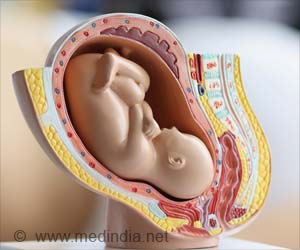Mothers dealing with depression were more inclined to express parenting stress and less likely to perceive themselves as capable caregivers.

Parenting While Depressed: The Influence of Interpersonal Supports and Community Resources for Mothers
Go to source) Dr. Dow-Fleisner’s findings, recently published in the Journal of Family Issues, have important implications for how social workers and clinical practitioners—as well as families and communities—can help.
‘External assistance mitigates the potential hazards to children's well-being resulting from maternal depression. #depression #depressedmothers’





While a lot of research focuses on the postpartum period during which the rate of depression among mothers is highest, Dr. Dow-Fleisner wanted to focus on depression occurring later in childhood. Her team used data from a large longitudinal US study to compare depressed and non-depressed mothers of nine-year-old children. They also reported engaging in more disciplinary tactics, including nonviolent tactics like taking away privileges as well as aggressive tactics like cursing or threatening the child. In terms of involvement, they were less likely to be involved at the child’s school, such as attending an open house. However, they were equally likely to be involved in home activities, such as helping with homework.
“Furthermore, mothers with depression reported fewer interpersonal supports and community resources than mothers without depression,” says Dr. Dow-Fleisner. “This is consistent with previous research.”
Interpersonal and Community Support Alleviates the Effects of Maternal Depression
Interpersonal supports refer to both emotional and material help from others, such as a relative providing advice or emergency childcare. Community resources refer to safety and neighbourhood cohesion. Neighbourhood cohesion measures the willingness of neighbours to help and the shared values of the neighbourhood, among other social and trust factors.“Notably, those mothers with depression who reported higher levels of support and cohesion felt less stressed and more competent in their parenting,” says Dr. Dow-Fleisner. “These positive perceptions translated to less psychological aggression-based discipline and more home and school involvement with their children.”
These findings fit with a resilience perspective, whereby mothers facing adversity like depression can still thrive as parents—especially when these protective factors are present.
Advertisement
Dr. Dow-Fleisner adds that supportive programs should go beyond addressing immediate parenting problems and instead build capacity. For example, a community-based parenting support group could help a mother to build a network of people who could provide material and emotional support as needed. Dr. Dow-Fleisner cites Mamas for Mamas as one such community-based group. Mamas for Mamas, with branches in Kelowna and Vancouver, builds community and provides material as well as other supports for mothers and other caregivers.
Advertisement
Reference:
- Parenting While Depressed: The Influence of Interpersonal Supports and Community Resources for Mothers - (https://journals.sagepub.com/doi/10.1177/0192513X231181369)















